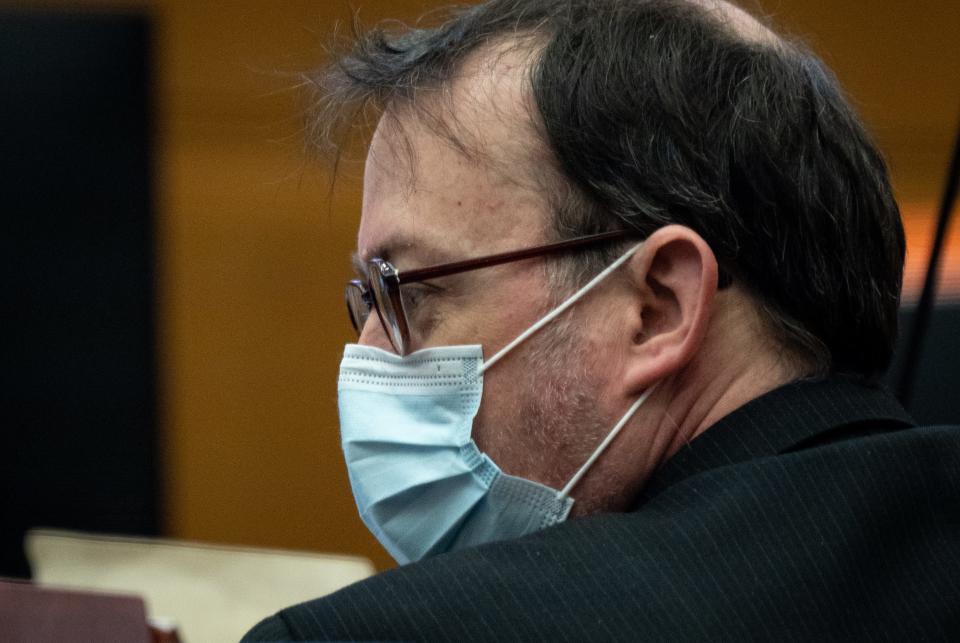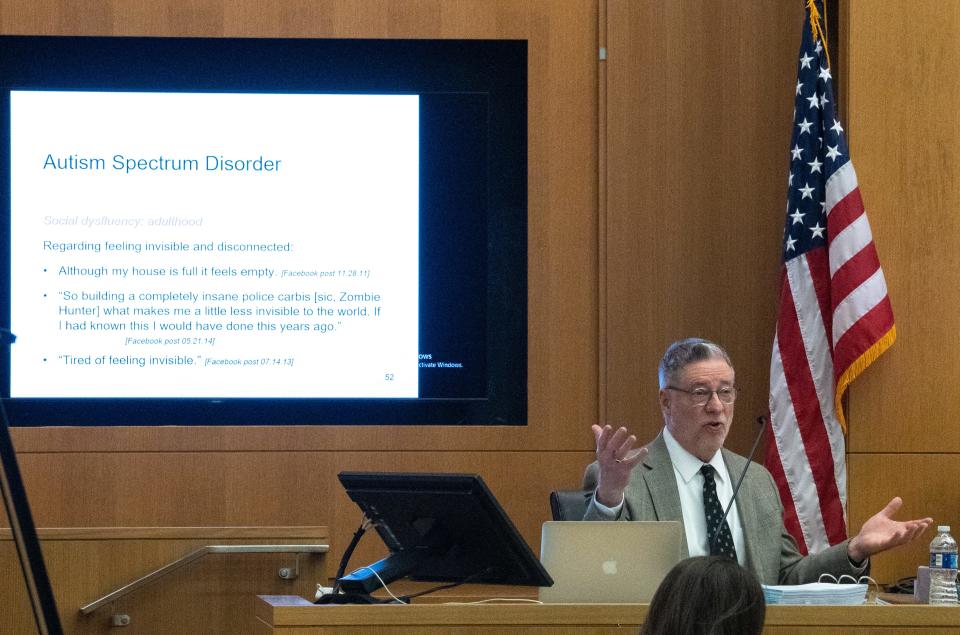Canal killings: Expert cites Bryan Miller's 'immature' brain, impaired judgment in murders
The childhood abuse and trauma experienced by Bryan Miller, who murdered two young women in Phoenix in the early 1990s, had a catastrophic effect on his ability to make decisions and engage in moral reasoning, a defense expert witness has testified.
Dr. Mark Cunningham returned to the stand Thursday in the penalty phase of the "canal killings" case, as Miller's attorneys seek to persuade Judge Suzanne Cohen to spare their client from the death penalty.
During the trial earlier this year, Cunningham spent 13 days on the stand, much of his testimony focused on the childhood abuse Miller reported experiencing at the hands of his mother, Ellen.
“If Ellen had set out when Bryan was an infant to create someone who was going to commit a sexual homicide, she left no square unchecked,” Cunningham said Thursday.
“Except perhaps engaging in sexual homicides herself with him as a confederate.”
Miller was found guilty earlier this month of murdering Angela Brosso in November 1992 and Melanie Bernas in September 1993. He attacked the two women as they cycled along Phoenix canals, inflicting a fatal stab wound to the back before mutilating and sexually assaulting them as or after they died.

The murders, which became known as the "canal killings" because the victims were found near the Arizona Canal, went unsolved for more than two decades. Miller was arrested in 2015 after his DNA was matched to samples from vaginal swabs.
He pleaded not guilty for reasons of insanity, fighting the charges over the course of a six-month bench trial.
Judge Suzanne Cohen found him guilty of first degree murder, kidnapping and attempted sexual assault of both Brosso and Bernas. Now she must decide if he should be sentenced to death or go to prison.
Canal killings trial: 'Immeasurable' pain: Family of victims describe impact as judge mulls penalty
Expert: Issue is what shaped Miller's morality
Cunningham began his testimony Thursday by outlining how moral culpability differed from criminal responsibility.
Criminal responsibility is "one side of the line or the other," he said, a clear demarcation between whether Miller could control himself or not, whether he knew right from wrong.
With the guilty verdict, he said, the questions shifted to moral culpability, which exists on a continuum.
Moral culpability, he said, “is not looking at an absolute question of could he control himself, but instead what diminished his control.”

Similarly, he said, it was not about if Miller knew right from wrong, but rather about what shaped his morality and his value system.
“Even though people make a choice to do exactly the same act, their moral culpability may differ with the raw materials they brought to their decision making," Cunningham said.
Cunningham said that, in his opinion, Miller “experienced a profound level of adversity in terms of damaging and impairing factors in his development that catastrophically inclined the slope from which his choices were made.”
Canal killings: Judge rules Bryan Patrick Miller eligible for death penalty
Looking at the science of brain development
He said that at the time of the murders, Miller, who was 20, was working with an "immature brain system."
Cunningham testified that the best available science suggests brain maturity is reached around age 25. Before that age, he said, the still-developing brain can account for poor judgment and involvement in crime.
He said it was a fact car rental and insurance companies are familiar with, pointing to statistics showing a higher rate of fatal car accidents among those aged 15-24 compared to older age groups.

Data from the U.S. Department of Justice also indicates the rate of homicide offending for people aged 18-24 is twice that of the next age group, 25-34, he said.
This science around brain development on top of Miller’s existing mental disorders and traumatic past had significant ramifications on his ability to reason and make decisions, Cunningham said.
“They are profoundly impairing,” Cunningham said. “In terms of the resources he can bring to his judgment, impulse control, moral reasoning, those have a direct link to his moral culpability.”
He also testified that in his opinion Miller was unlikely to commit acts of serious violence as he served out a life sentence.
The case returns to court Monday.
This article originally appeared on Arizona Republic: Canal killer Bryan Miller had 'profoundly' impaired judgment: expert

